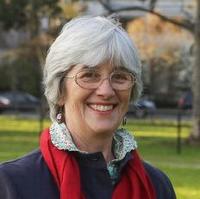 Here in hospital, nurses taking observations mark the passing of the hours: they issue medicines, meal trays are brought and removed: pigeons flutter outside the window.
Here in hospital, nurses taking observations mark the passing of the hours: they issue medicines, meal trays are brought and removed: pigeons flutter outside the window.
Disease and death, if they haven’t visited us earlier, come calling on all of us in the fourth quarter of our lives. For me it came earlier than I’d been anticipating.
At fifty-seven years, a non-smoker, my prolonged cough was diagnosed as Stage 4 lung cancer, with probably just months to live. My oncologist suggested that with new targeted therapy I could see two years. Nearly six years on, I’m surprised to find myself still alive, albeit with reduced health and energy. Tumours which have grown in my bones, brain and liver, as well as the base growth in my lungs, have been contained or removed by different forms of treatment (targeted chemotherapy, radiotherapy, brain surgery, immunotherapy). As one treatment stops working, my doctors offer another one – until they run out. Diagnosis came at a time when career and work opportunities were expanding. A masters intensive I was to be teaching in the USA had to be cancelled, together with my part in a major international conference. I’d just accepted the role of leading an annual six-week international intensive course, and had to let that go, with other plans for wider travel and work. There wasn’t much time to grieve – I was focused on the prospect of imminent death and preparing for that with my family.
Targeted therapy enabled me to continue with my basic teaching load for a while and recover energy to enjoy more normal life (while recognising that things like teaching intensives were now beyond me). The years since then have seen losses and gains but overall decline, sometimes from cancer, more often from treatment or other health conditions that cancer seems to make room for.
A diagnosis of terminal illness is always challenging, but maybe less so in the final quarter of our lives than if it had come earlier. We have the privilege of looking back on a full life, of many different opportunities, of long years knowing and experiencing the goodness of God, as a foundation for resting on that now. It’s harder when it comes to young lives full of unrealised promise, life not yet lived, chances not able to be taken up. The task now becomes to live and to die as well as possible: for us and for those around us whom we leave to grieve. How to care for them in their costly care for us, emotionally and physically, in time and help?
It brings both challenges and opportunities.
The challenge to accept this as the Sovereign God’s gift to me, to be received with thanksgiving. Not so much a fight, this is a context within which to seek to live for God, learning to meet Christ in my cancer.
The challenge to hold my ambitions lightly: together with the challenge of living in uncertainty, unable to make long term plans. Do I have months left or years? How much energy will I have at any given time? And I live with the bewilderment of seeing younger friends die earlier, go ahead of me.
The challenge to maintain a wide perspective, focused on God and others. The lockdowns of covid and of cancer blurred together for me, and it was easy to let my view diminish to the small world I inhabited. This is especially as discomfort and disability increase: pain tends to preoccupy our consciousness.
Familiar disciplines, daily prayer apps prayed with family, become an important part of maintaining perspective. It’s been good to immerse myself daily in the Psalms, a discipline of the church from ancient times. Meditating on/memorising scriptures is a gift especially when I haven’t capacity for much more. The challenge is not to let those slip when I am strong enough to engage in other projects.
There are also new opportunities. All time and energy becomes more than ever a gift from God. For me, this has included the unexpected gift of more years than I thought I had – time to spend with family and loved ones, time to work on projects.
A focus of the fourth age is equipping and raising up others. The need to hand over is expedited by the prospect of imminent decline and death, and so we get the joy of seeing others take up the baton from us and run with it as God has gifted them to do.
Having to let other things go and retire from teaching, has given me the opportunity to do more writing in the last few years. As well as journal articles, it’s been good to work on a book that had been simmering at the back of my mind and my computer files for over a decade, and pursue it through to final publication and launch. I’m thankful for the gift of all those who supported me, for wise editors, illustrators, and all who joined in the celebration of its launch. It has been a blessing to receive the generosity of so many in community.
As Christians we are called to live lives characterised by gratitude. The more helpless I get and dependent on others the more I am thankful for God’s care and love shown through the prayers, care, medical expertise and wisdom of people.
Moyra Dale spent over two decades in the Middle East working in education and ethnography. She has taught courses in Islam and cross cultural anthropology in Australia and the USA. She was on the staff of St Andrews Hall for many years. She is married to Dale and has adult children. "Islam and Women: Hagar’s Inheritance" was published recently and is available through Regnum Press.
Sadly Moyra passed away soon after this edition of Essentials was published.
